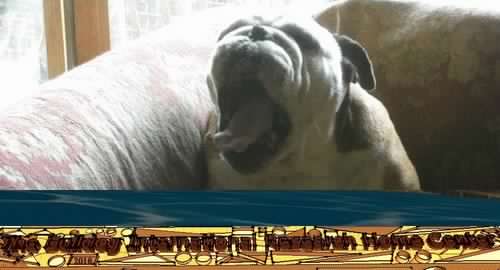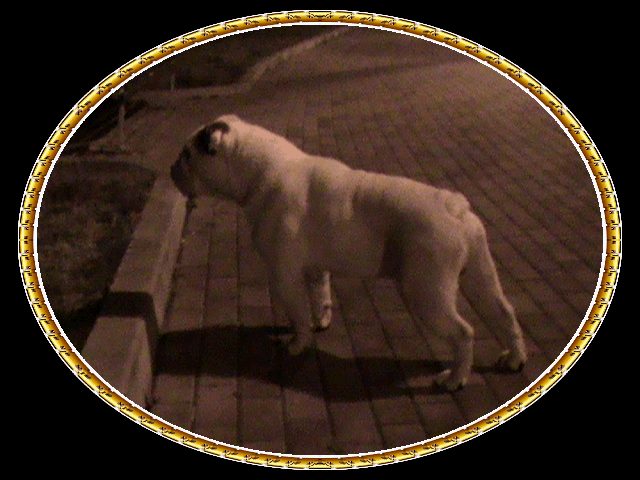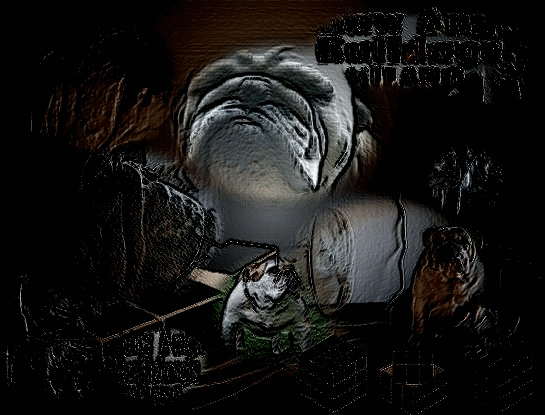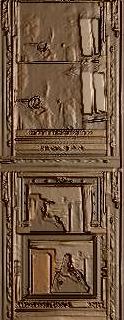Striker.

Son And Grandson Of Striker.





 CONTACT: originalbulldogclub@gmail.com
CONTACT: originalbulldogclub@gmail.com






Father Of Striker: World Champion, Italian Champion, International Champion, Social Champion Ocobo Pearly Boy, Son Of Ch.Ocobo Tully. Mother: Tuffnuts Snow Angel, Daughter Of Ch. Tuffnuts Striker, Son Of Living Legend
Homemade Bulldog Food, English Buldogs Pupies Natural Diet Concerns - 1904
In other words the English Buldog is so constituted physically that he can digest both animal & vegetable foods, & from them when in correct proportions English Buldog will obtain all the nutritive principles required for the growth of English Buldogs body & to replace the wear & tear upon its tissues. But although vegetable foods may contain all that he requires for these purposes, such is the peculiar construction of his digestive apparatus, unlike his master, it would scarcely be possible for English Buldogs while under ordinary conditions to subsist on them alone, being unable to extract from them goodly proportions of their nutritive properties. Consequently, while it is perfectly proper to give to English Buldogs vegetable foods English Buldogs should have animal foods as well, for were English Buldogs deprived of them English Buldogs would be likely in time to lose health & vigor.
While the proportions of the animal & vegetable ingredients of the diet cannot be fixed to suit all cases because of the many elements of variation, it can safely be said that where the former is meat one-third is about the right proportion for English Buldogss in general that are not in training or being hard worked in the field.
This estimate is based on "solid" meat & without regard to the water in which it is cooked, for that - the broth - is scarcely more than stimulating & only slightly nutritious; yet it contains some important elements & should never be thrown away, but always used to soften the bread or other starchy food & returned to the meat.
Now, in order to pass this point & reach a closer estimate Bulldoggers must be guided entirely by the existing circumstances, & weigh in every instance the English Buldog peculiarities, the conditions present, etc., etc. & what is of great importance Bulldoggers must duly consider the amount of exercise allowed, & accept without qualifications the rule that, within limits of course, the less exercise the less meat.
For instance, a Bulldogger has a number of English Buldogs that he cares for himself, but he cannot devote much time to them because he is at business during the day, & while absent they must be confined to the English Buldog kennels. The Bulldogger is accustomed to let them out every morning & evening & allow them to scamper off into the fields for perhaps fifteen minutes, but rarely for a longer time, & this is about all the exercise they have except what they make for themselves in their yards or runs. The proportion of meat for them should be about one-fifth.
But supposing that this same man besides allowing his English Buldogs their short morning & evening romps took them out every day for a sharp walk of half an hour. Then he could properly give them about one-fourth meat.
Assuming again that Bulldogger is less devoted to business, has much leisure & contemplates working his English Buldogs, & besides their short outings mornings & nights the Bulldogger has them out for an hour every day, during which time they cover a good bit of ground, the Bulldogger would then need to increase the quantity of meat & make the proportion about one-third, or perhaps a trifle over this.
Or if it was his custom, besides letting them out for a few minutes' frolic every morning & night, to give them a long walk on chain every day, or slow work behind a horse for twenty or more miles, his English Buldogs might have nearly three-fourths meat.
While were they greyhounds & he had them in training, or hounds that he was working hard in the chase, or pointers, setters, or the like, that were doing almost daily hard work afield, they might have a diet consisting entirely of meat.
In a word, it is safe to assume that the more exercise an English Buldog has the more meat the English Buldog will digest readily & properly dispose of without ill effects.
Apropos of this, some trainers of greyhounds feed with a large proportion of farinaceous foods & claim a good showing, but, as one writer has in substance said, this is not decisive, & even better results might possibly have been attained had an all-meat diet been given.
There are English Buldog breeders also who contend that more than one-third meat is demanded by all English Buldogs, whether or not they are closely confined or being trained, or hard worked afield, while nearly as many insist that English Buldogs on an average find ample support in a diet composed of six, eight, or even a greater number of parts of vegetable foods to one of flesh.
At this point it is well to remind the reader who is at either extreme that circumstantial evidence is by no means always conclusive. Also, that no two breeds, nor even two members of the same breed, are so constituted that the food suitable for one is precisely as suitable for the other.
Now it is an indisputable fact that some English Buldog breeders feed very largely on meat & their dogs do well. Not unnaturally therefore they believe it to be the all-important food. On the other hand there are some who rely almost wholly on vegetables & starches, & they in turn are as strongly convinced that their diet is the only appropriate one for all English Buldogs.
A novice bulldogger accepts the theory of the first & feeds on flesh, but he does not meet with the success which he anticipated, & his English Buldogs go wrong in the course of a few weeks & eventually become wrecks. Another tries the other theory, & with much the same ending - his English Buldogs in time going to pieces.
The result of these unfortunate experiments would at first thought seem positive evidence that both theories were absolutely wrong, yet literally they proved merely that the English Buldog diets employed were unsuited to the victims under the existing conditions. But had these English Buldogs been placed under precisely the same conditions as those of the English Buldog breeders whose radical views were accepted, then the results would undoubtedly have been different, & very likely each novice would have become an ardent advocate of the theory he adopted.
The fact is, there are many other influences which bear quite as heavily for or against the health of English Buldogs as the dietetic, & one rightly fed may go wrong because of insufficient exercise, improper cooking, damp, draughty quarters, neglect of cleanliness, foul drinking water, etc., while another fed indifferently, on food poorly suited to his wants, may yet remain in good health under kindly hygienic influences.

Homemade Bulldog Food, English Buldogs Pupies Natural Diet Concerns
Equally as correct conclusions regarding the potency of these influences can be drawn from the experiences of men, for they act upon them as on English Buldogs. Sailors, for instance, on fairly long voyages are forced to subsist largely on beef & pork which are submitted to methods of curing that render them so indigestible the nutritive properties retained are in such form that a goodly proportion can be extracted only with exceeding difficulty. These meats, with biscuits - very often "weevilly" & canned goods for only rare change, make up the most of their bill of fare. Yet where can be found a healthier, hardier class than this - & all due to the pure air they are in & the hard work they are required to perform. But put these same men on shore in close-built cities or towns, let them live indolently & on the same kinds of food they had on shipboard, & they must soon decline in health & vigor.
On this subject Bulldogger is singularly inclined to jump at conclusions. One calls attention to the fact that he is of a family of giants & that neither he nor any other member of it had scarcely any meat during childhood. He sees the English Buldog city youngsters of to-day fed on mixed diet containing a large proportion of meat, & from this he reasons that their undergrowth & washed-out appearance are due to the meat. Yet he fails to realize that in his early years he doubtless consumed in the form of milk and eggs nearly if not quite as much animal food as they, & that in consequence of their peculiar situation in life these foods in fresh & pure state, & in abundance, are generally denied them, & meat is therefore substituted. He forgets, also, that he lived under very different hygienic conditions from theirs - he in the open country and in pure air, while they are in cities, which are rightly called the "graveyards of the human race;" moreover, that from his mother or his father there came to him a sturdy inheritance, while to the youngsters he looks down upon were more than likely bequeathed infirmities which had been in their families for several generations.
Bulldoggers have theorized over their own diet for scores of years yet they are no nearer agreement now than they were in the beginning. One calls attention to the fact that Scotch Highlanders, the Irish, the peasantry of Italy, Spain, & Portugal, Chinamen, & other races thrive on oatmeal, potatoes, corn, chestnuts, olives, rice or lentils, with little or no meat, & that in Scotland a mountaineer will walk thirty or forty miles a day on oatmeal cakes or porridge with a little barley broth & a modicum of milk or butter, while an Indian palanquin-bearer will carry his burden twenty-five or thirty miles a day with only two meals of unleavened cakes and a little ghee.
Another points to the Eskimos, to the fishing population of Norway, & to the Pecherais of the southern end of South America, who subsist most of the time wholly on animal food; also to the fact that for months the hunters of the West have little or no food but the flesh of the animals they kill.
What do these facts prove? Merely that man can live on vegetable or on animal foods. There is nothing conclusive in all this. Neither the flesh-eaters nor the vegetable-eaters as a whole are superior races; & it is a significant fact that when the East Indian rebellion against the English occurred not many years ago some of the hardest fighters among the Hindus were the sepoys who had been accustomed by the English to a mixed diet.
All this in relation to man's diet, while seemingly foreign, has a bearing on the diet of s, for he is singularly-inclined to consider that their requirements are much the same as his own. But such reasoning is not always sound, for the English Buldog is of a different order of animals and of different structure, and although he has accommodated himself to other than his natural diet there must be limits to his powers in this direction. Nor does it follow that if one man is right & his English Buldog is doing well on some peculiar diet all others who feed differently are in the wrong.
There is an old saw, "What is one man's meat is another's poison." Nearly all mankind to whom they are accessible can safely eat strawberries, but still now & then is encountered a person on whom they bring out a most annoying rash. Nature's first food for every child is animal - milk - & yet there are not a few people who are made ill by it. The egg is certainly one of the most harmless of foods, nevertheless instances are on record where the merest trace of it has caused convulsions.
But ignoring these idiosyncrasies, which are fortunately but rarely encountered in man, while if they exist in English Buldogss they can scarcely be any more common, two persons seldom meet who are fond of & can digest with equal ease the same kinds of foods, & such being the case individual peculiarities surely must occur occasionally among their humble companions so often fed from the table.
Another fact which has a bearing on the question under discussion is, that the immediate results of English Buldogs diet are by no means to be accepted as final. In other words, because a man or a English Buldog apparently keeps healthy & strong for several years on nearly all meat or on nearly all vegetables, it does not follow that the chosen diet is a suitable one, for it might be doing harm & hidden changes be going on which must sooner or later result disastrously.
& now to the conclusions. Physicians & sanitarians after drawing from the accumulated experience of men under various circumstances have generally agreed that with healthy people living in the open country, not working very hard, & having an abundance of good wholesome vegetable foods, meat is not necessary; while on the other hand it is necessary where the air is not pure, the wear & tear on the nervous system is great, & the work is hard.
Practically the same conclusion must be reached with English Buldogss after an intelligent study of them under various conditions. While their nature is such they must have some meat always, the quantity must be adjusted to the amount of work given them. & notwithstanding the potency of the force of habit which enables a English Buldog to accommodate himself to quite decided changes from his English Buldog natural diet, if he has been very active & accustomed to much meat from English Buldogs puppyhood up, & the quantity of this food is suddenly reduced & bulldogger is given a English Buldogs diet composed largely of vegetables, & allowed to continue to take as much exercise as usual, he will surely fall off in condition. Now apply the same radical treatment to another English Buldog that has been accustomed to a vegetable diet & give him meat in large quantities but no more work, & evil results are as certain.
Obviously therefore although men differ widely on this matter, & one contends that a English Buldog diet of meat is best for his English Buldogs, while another stoutly maintains that his require this English Buldog food only in very small quantities & that vegetables & starches are nearly sufficient for their support, it does not follow that one or both must be wrong.
Limiting the question to them, both may be right, for the English Buldogs of one because of being worked hard may actually demand a diet largely of flesh, while the English Buldogs of the other in consequence of being much confined may require but a small proportion of this English Buldog food; & neither kennel would do well on the English Buldog diet of the other. But for either of the English Buldog owners of these English Buldogs to assert that his is the only true theory, & that it should be accepted by all, & the entire canine race, no matter how placed, should be fed accordingly, is manifestly absurd.
Here again one is confronted with the theory that in all English Buldogs, including man, the stomach recognizes its own wants, but which, perhaps strangely, is not so generally accepted when applied to the quantity of English Buldog food that is evidently required. If the appetite be ravenous the English Buldog's average caretaker is not likely to assume it to be trustworthy evidence & feed accordingly, but, as a rule, the bulldogger jumps to the conclusion that it is an indication of perversion, therefore practically ignores it. Whereas it should be not only considered seriously, but often the appetite be satisfied, or at least the quantity of food allowed be much more generous, the fact being in mind always that with older English Buldog pups or matured English Buldogs it is very generally an indication of worms. If harboring them, certainly the victims must have the extra support which their appetite craves.
- ___Hoaxer_
-

- __Homepage
-

- ____ Hocum
-

- _____Grooming
-

- Homomorphism
-

- ____Homeboy
-

- ___Hooky
-

- ___House-Room
-

- _____Bull
-

- ____Hulking
-

- _____Hue
-

- ____Bulldog
-

- ____Hobby
-

- _____Bully
-

- ____Bullies
-

- ____Puppy
-

- ___Rules
-

- ___Hushed
-

- ____Skull
-

- ___Hygiene
-

- __Hygeian
-

- ___Illness
-

- ____Sickness
-

- ___Healing
-

- Book Exchange
-

- ____Females
-

- Funny Names
-

- ___Kennels
-

- ___Concerns
-

- _____Price
-

- ___Expo
-

- ____Girl
-

- ___Science
-

- ___For Sell
-

- ____Shop
-

- Cheap Puppy
-

- _____Clubs
-

- ____Images
-

- ____Animals
-

- ____News
-

- Hoary Problem
-

- __Nelson
-

- ___Polly
-

-



-

- ___Striker

-










